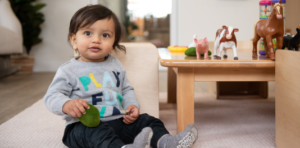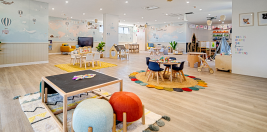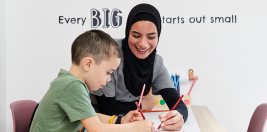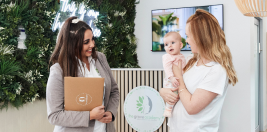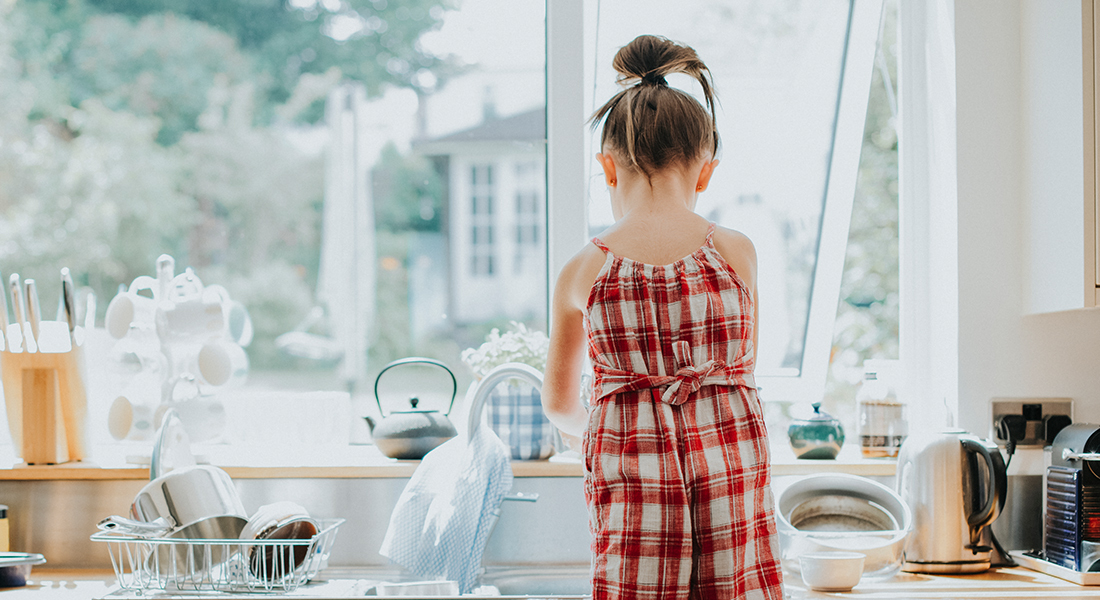
There is so much parents can do at home to help prepare their child for the transition to school. Often it is the most important school readiness skills, such as self-care and emotional regulation that are best practiced within the home environment.
Simple activities such as giving them small household jobs such as putting their plates in the sink fosters independence. Or allowing them to practice getting dressed each morning builds self-care skills.
Here are a few things you can do over the next year to prepare your child for the transition to school:

SELF-CARE AND PHYSICAL
- Let your child practice getting dressed, including putting their own shoes on
- Teach them how to use the toilet independently, including wiping their bottom and, for boys, using a urinal
- Prepare a packed lunch when you go on outings and teach your child how to open their own containers and packets
- Encourage table-top activities that develop your child’s fine motor skills, such as playdough, cutting, colouring and drawing

SELF REGULATION
- Teach your child to listen and remind them to use these behaviours when you’re talking:
- Look at the person who is talking
- Listen to all the words
- Stay still while you are listening
- Wait your turn to talk and don’t interrupt
- Teach your child to regulate their emotions when playing with others, e.g. remind them to wait their turn, that they will get a turn soon and to choose another toy if someone else is using it

COGNITIVE
- Do activities at home that have an end point, like puzzles, board games, craft and colouring – encourage them to keep going until the end and praise them for finishing
- Practice counting numbers forwards and backwards
- Practice counting objects, such as blocks or small toys – ask ‘how many?’
- Talk about the days of the week and use the words ‘yesterday’, ‘today’ and ‘tomorrow’

SOCIAL AND EMOTIONAL
- Try not to reward tantrums by always giving your child the thing they want; instead offer comfort and calmly tell them that you understand they are upset and try to move on to a different activity
- Arrange play dates with friends where you leave them and come back so that your child is used to separating from you in different environments
- If your child attends a party, try leaving them to stay and play independently so they are used to not always having you around
- Encourage your child to brush off and move on from minor upsets (e.g. falling over but not hurting themselves) and try to play these down
- Encourage them to be assertive with other adults, e.g. saying hello to people in shops, or to grown-up friends
- Teach your child to be a helper by giving them small household jobs, like putting their plates in the sink, packing away their toys and other jobs that help you, like helping carry things to the car

LITERACY
- Read with your child every night – get them to turn the pages so they are used to using books; see if they can start to recognise common words like ‘a’, ‘the’, ‘and’ and ‘it’.
- Point out words or letters they might know in the environment, such as on a sign at the supermarket (e.g. ‘there’s a C – your name starts with C’)
- Practice saying letter names (a,b,c…), but also practice the letter sounds, e.g. letter B says ‘buh’, letter H says ‘huh

SPEECH AND LANGUAGE
- Teach new words as you come across them, and explain meanings
- If your child uses a grammatical error (e.g. ‘I goed to the beach’), model back the correct way to use it (e.g. ‘You went to the beach’)
- Similarly, if your child uses speech sound errors (e.g. ‘I like your wing’), model back the correct way (e.g. ‘You mean you like my ring’)

